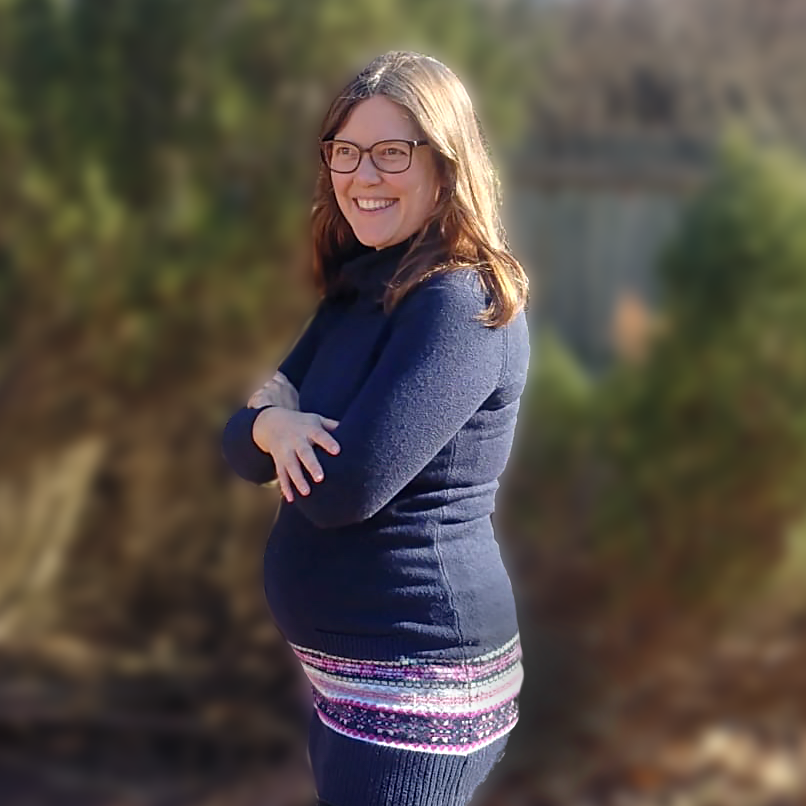Schoop Selected As a 2021 Sloan Fellow
Continuing an exceptional academic year, Leslie Schoop, assistant professor in the Department of Chemistry, has been named a 2021 Alfred P. Sloan Research Fellow in Chemistry.
The prestigious two-year fellowship is awarded annually to 128 early-career scientists and scholars of outstanding promise from the United States and Canada. The fellowship carries a $75,000 award.
Fellows are selected on the basis of their independent research accomplishments, creativity, and potential to become leaders in the scientific community through their contributions. Schoop is one of five Princeton University faculty to be selected as Sloan Fellows this spring.

Photo courtesy of Leslie Schoop.
The award follows on the heels of Schoop’s 2020 Packard Fellowship, which she received in October from the David and Lucile Packard Foundation.
“I’m thrilled. It also takes a lot of pressure away,” said Schoop, laughing. “There’s a lot of pressure on young faculty because we need to prove ourselves. The first two years of being a new faculty member are very tough. You have to work extremely hard and you’re climbing what seems like an infinite mountain, hoping that something good comes out of it. For the first few years here at Princeton, I worked like a crazy person. Now, it’s really paying off.
“My whole group deserves a shout-out. Especially in times of COVID when I couldn’t come to the lab as much, they’ve managed to function fully during this difficult time. I’m extremely thankful that they are so well-organized and that it’s such a mutual effort. They’re all amazing.”
Department Chair Gregory Scholes, the William S. Tod Professor of Chemistry, nominated Schoop for the fellowship. “This award is an important one because it highlights a significant critical mass of top young faculty across the United States. It is a landmark award for Leslie’s career—and signals her great achievements to come,” said Scholes.
“Leslie’s research presents a shift from mainstream inorganic materials chemistry to the nexus with physics of exotic (in particular, topological) systems,” he added. “The fact that Leslie’s work is gaining acclaim in this space makes her success particularly pleasing.”
Schoop works at the interface of chemistry and physics, using chemical principles to find new materials with exotic physical properties. She is an associated faculty member of the Princeton Institute for the Science and Technology of Materials (PRISM), and an Interdisciplinary Research Group (IRG) co-leader in the Princeton Center for Complex Materials (PCCM).
As part of the submission process for the Sloan Fellowship, Schoop included a paper of which she is especially proud, “The role of delocalized chemical bonding in square-net-based topological semimetals.” The paper was published in the March 6, 2020 issue of the Journal of the American Chemical Society (JACS), receiving several commendations.
“This is the paper that basically lays the foundation for all the claims I’ve been making that you can use chemistry to describe the physics of topological materials. Here, we provided evidence that this is possible,” Schoop said. “Such a deep connection between chemistry and the physics of topological materials has not been made before. Most excitingly, this paper is only the beginning. We now can expand on this idea in many different ways.”
Recent recipients of Sloan Fellowships in the Department include Assistant Professor Ralph Kleiner, named a fellow in 2019; and former Assistant Professor Todd Hyster, named in 2018. Fellows are selected by an independent panel of senior scholars in their field.
Princeton has four other Sloan Research Fellows this year, including Mark Zhandry, computer science; Christopher Neilson, economics; Yakov Shlapentokh-Rothman, mathematics; and Biao Lian, physics. Find the full list of winners here: https://sloan.org/fellowships/2021-Fellows.
The Alfred P. Sloan Foundation is a private, not-for-profit foundation based in New York City. The Foundation funds high-quality research in science, technology, engineering, mathematics, and economics; efforts to increase diversity, equity and inclusion in scientific institutions and the scientific workforce; development of tools and technologies to empower scientific discovery; and efforts to enhance and deepen public engagement with science.
